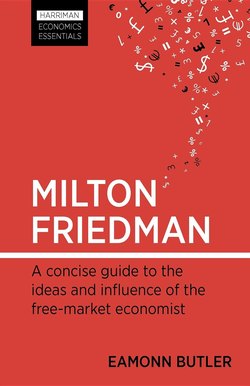Читать книгу Milton Friedman - Eamonn Butler - Страница 14
На сайте Литреса книга снята с продажи.
Friedman’s economic impact
ОглавлениеFriedman won important battles in economic science, too. He is best known for his part in the fight against inflation, where his ideas were hugely successful. Through following the high-spending policies of Keynes and his followers, postwar governments had quickly found their finances getting out of control, their currencies losing their value and prices escalating. By the time the Berlin Wall fell in 1989, world inflation was a staggering 19% and rising. At that rate, prices double every five years.
“Inflation is a disease”, wrote Friedman: “a dangerous and sometimes fatal disease that, if not checked in time, can destroy a society.” It could not be endured or safely traded off against other economic objectives like employment, as mainstream economists believed. He argued that there was a “natural rate” of unemployment, which reflected the realities of the labour market. When governments adopt high-spending policies to expand employment beyond this level, they succeed only in making things worse. Their policies raise inflation, which undermines the delicate workings of the market economy, and so causes more unemployment.
Friedman was blunt: the source of this disease could be explained in a single sentence – “Inflation is always and everywhere a monetary phenomenon.” To cure inflation, governments must take more care with money. It was a simple message from a brilliant communicator that eventually the world came to understand. As more and more governments adopted Friedman’s advice, world inflation plummeted, from a peak of nearly 29% in 1994 to just over 3% a decade later. With that came a significant rise in peace and prosperity. And most of the credit belongs to Milton Friedman.
